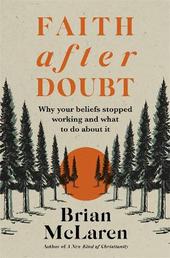
|
Faith after Doubt: Why Your Beliefs Stopped Working and What to Do About It
Paperback / softback
Main Details
Description
'For all those who have understood that doubt and free thinking are failings of your faith, Brian's book will help you live fuller and breathe easier.' Glennon Doyle Sixty-five million adults in the US have dropped out of active church attendance and about 2.7 million more are leaving every year. In the UK, surveys indicate that religious belief is also declining - and yet a surprising number of people still pray. Faith After Doubt is for all those who feel that their faith is falling apart. Using his own story and the stories of a diverse group of struggling believers, Brian D. McLaren, a former pastor and now an author, speaker, and activist shows how old assumptions are being challenged in nearly every area of human life, not just theology and spirituality. He proposes a four-stage model of faith development in which questions and doubt are not the enemy of faith, but rather a portal to a more mature and fruitful kind of faith. The four stages - simplicity, complexity, perplexity and harmony - offer a path forward that can help sincere and thoughtful people leave behind unnecessary baggage and increase their commitment to what matters most. 'In this important book, my friend and colleague Brian McLaren helps you find a deeper and wiser faith that is enriched by doubt instead of threatened by it.' Fr Richard Rohr
Author Biography
Brian McLaren is a bestselling author, internationally acclaimed speaker and outspoken advocate for 'a new kind of Christianity'. Named one of Time magazine's 25 most influential Evangelical Christians, McLaren was a pastor for over 20 years. He is a frequent guest on radio and television programmes, and an in-demand blogger on faith and public policy (brianmclaren.net). @brianmclaren
ReviewsA gripping, honest and practical book for a Christian who is experiencing doubt... be prepared to be deeply challenged and hugely encouraged. * Christianity Magazine * This is a challenging, provocative, and, at times, uncomfortable read, but, above all, it demands action. Churches need to listen to millennials and engage with their hopes and fears. They also need to reach out to those who have left, asking why and where they have gone and being prepared for some uncomfortable answers. * Church Times *
|